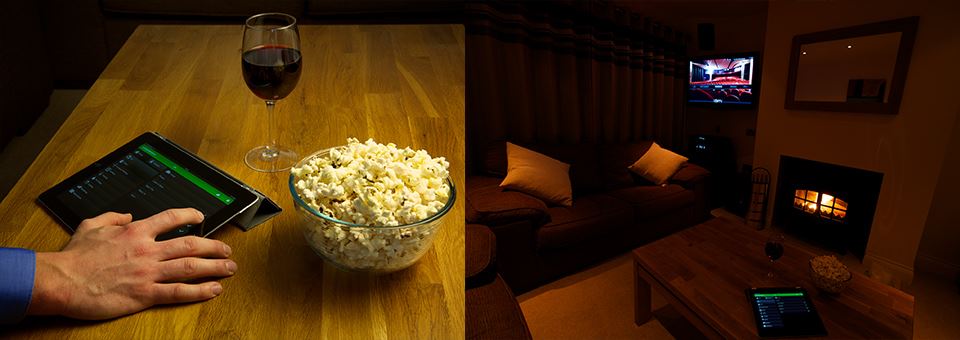
Smart Home Planning, Part 1: What Is A Smart Home?
What Do We Mean By ‘Smart’?
What is a smart home? It’s a question that’s being asked more and more, and often we find that it means different things to different people. So let’s start by taking a look at what the officials say. According to the UK Department of Trade & Industry, a smart home is “a dwelling incorporating a communications network that connects the key electrical appliances and services, and allows them to be remotely controlled, monitored or accessed.”
On the surface, this appears to be a very succinct definition; however, it doesn’t really get to the heart of what home automation is all about: creating an environment which enhances and simplifies everyday living.
Living Smart
We believe that a truly smart home understands and reacts to your routines and habits, saving you both time and money by automating the tasks you would normally do manually, for example checking all the windows are closed before going out.
Put simply, your house fits around your lifestyle, and not the other way around. This could mean anything from automating your blinds to wake you in the morning, or having an ‘all-off’ function to ensure everything is switched off at night.
Fact vs. Fiction
For many years, home automation was considered to be the preserve of the wealthy, but this attitude is changing- and fast! The solutions available were (and some still are!) expensive, limited, and not easily altered after installation- not exactly a ‘home of the future’, if you ask us!
The introduction of smaller, island solutions and ‘gadgets’ for controlling aspects of the home via smartphones and tablets has captured the attention of the wider consumer market, making home automation an affordable reality for more people than ever before.
But how do you get total home integration with easy remote control that’s both affordable and future-proof? Enter the Miniserver!
How can Home Automation work for me?
The great thing about home automation is that you can automate as much or as little as you like, depending on your needs.
These are a few examples of everyday situations where home automation would enhance your home life:
- Going away for the weekend? One swipe of your phone checks to ensure all windows and doors are closed and locked and that the heating is off.
- Each room is heated to just the right temperature. No more wasted heat in rooms that aren’t being used.
- A ‘going out’ switch by the front door can be clicked when leaving the house, setting the burglar alarm and turning all lights off.
- If you should forget to close the garage door after coming home, a text or phone call will remind you to close it as it gets dark outside.
- If you get up to use the bathroom in the middle of the night, the house will know what time it is and the motion activated lights will come on dimly to prevent you from being dazzled.
- Returning from that weekend away? Turn the heating on remotely and enjoy a hot shower upon your return.
What can I automate around my home?
The most commonly automated aspects of homes in the UK are lighting and heating, and this is usually driven by the spiralling costs of gas and electricity. Other popular choices include coloured lighting control, multi room audio streaming, home cinema automation and intercom system integration.
Why not take some inspiration from our real life smart homes?
My house is old- can it be smart too?
Yes! Any home can become a smart home! If you can’t bear the idea of re-wiring your house, we have a solution. It’s called Loxone Air. Retrofitting home automation is becoming an increasingly popular option. Look out for our upcoming blog in which we’ll explore the options available for wireless home automation.
In our next blog, we’ll be looking at the costs of smart homes, and how you can budget effectively. Don’t miss out!



